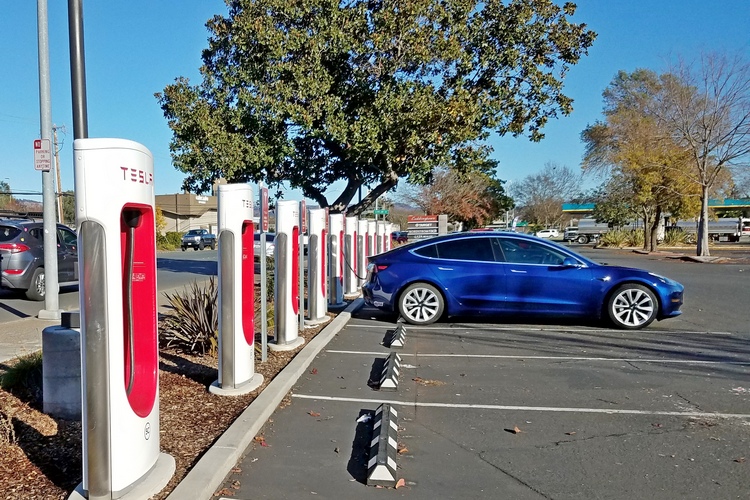Electric Vehicle Charging Stations

- Electricity sold as a commodity for the purposes of recharging electric vehicle batteries must be sold over an approved commercial device that complies with specification and tolerances outlined in NIST Handbook 44, Section 3.4 - Electric Vehicle Fueling Systems and California Code of Regulations, Sections 4000, 4001 and 4002.
- All alternating current (AC) EVSE installed prior to January 1, 2021 shall comply with the new requirements by January 1, 2031 (phase-in period).
- All alternating current (AC) EVSE installed on or after January 1, 2021 shall comply with the new requirements.
- All direct current (DC) EVSE installed prior to January 1, 2023 shall comply with the new requirements by January 1, 2033 (phase-in period).
- All direct current (DC) EVSE installed on or after January 1, 2023 shall comply with the new requirements.
Selling electricity to consumers to recharge a vehicle battery is a new application of an old idea. Consumers have been purchasing electricity for over 100 years. This new business application supplies electricity to consumers looking to purchase it in order to keep their vehicles operational.
Electric vehicle charging stations began appearing in parking garages, strip malls, hotels, coffee shops and apartment complexes over the last ten years. Some of these chargers provide alternating current (AC) while others supply direct current (DC) energy. Many of these newer chargers provide the ability to “fast-charge” a vehicle battery in considerably less time than any charger available for home use.
To inquire about the approval of any recently approved Electric Vehicle Supply Equipment (EVSE), contact California’s Division of Measurement Standards (DMS) by dialing (916) 229-3000. If you have any questions about the new requirements of the law in regards to electric vehicle charging stations, or any general questions about commercial devices, please contact our office by phone or e-mail through the contact information listed above.
 Translate
Translate